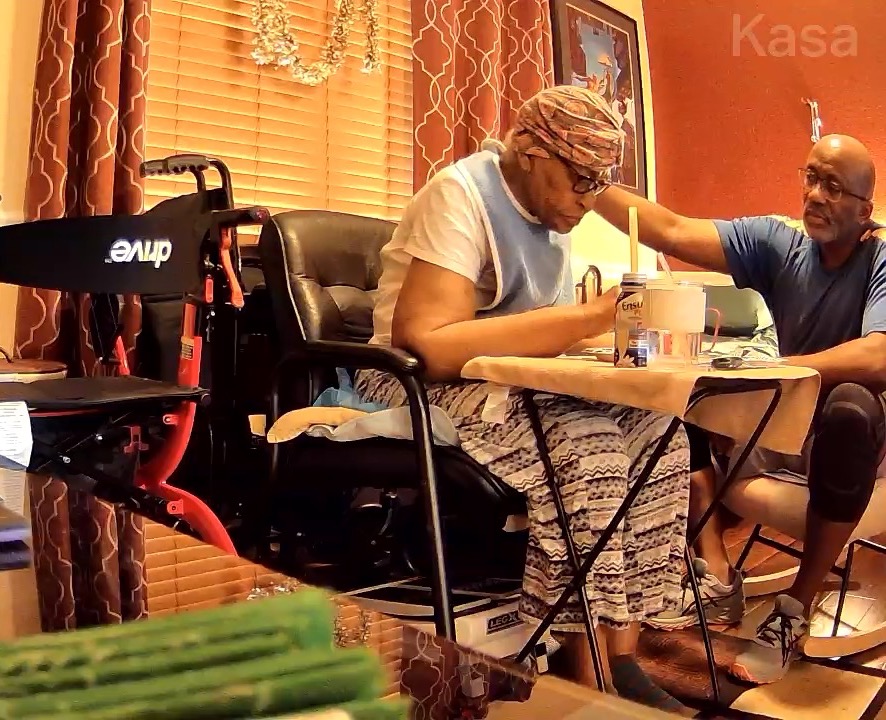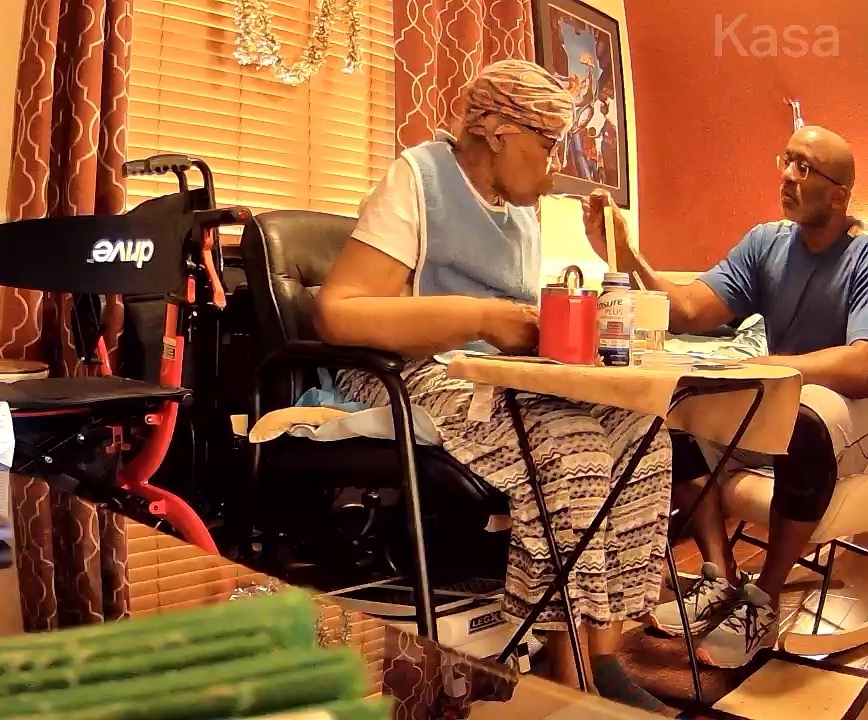Seeking Emotional Support through the Dementia Journey
As I embarked on my dementia journey, I soon realized that it wasn't just a physical battle that my mother was facing, but also an emotional one. The emotional challenges faced by individuals living with dementia, as well as their families, can be overwhelming. It is essential for the person with dementia and the caregiver to seek emotional support to navigate this difficult path.
In the early stages of my mother’s diagnosis, she often felt a whirlwind of emotions - fear, sadness, anger, and confusion. Accepting that she had dementia was incredibly challenging for her and for me as well. However, through some initial therapy and support from friends who have gone down this path before, I started to find some solace.
Therapy for my mother was short lived. She attended about 3 – 4 sessions and then said that she did not want to attend anymore. I asked her why, and she responded that the Therapist was only asking her the same things repeatedly and she didn’t think it was helping her. Without challenging my mother, I concurred with her request. Looking back on it, perhaps I should have taken a closer look into why my mother was not comfortable with the Therapist. Afterall, the Therapist was a younger White Female and perhaps there wasn’t a culture connection with an older Jamaican American Woman. I must admit that I was allowed to sit in on my mother’s first session only and I noticed that, or it appeared anyway, that the Therapist was essentially reading from a script. Now I am not questioning her credentials, but in my opinion, there is something to say about having a seasoned Therapist with relatable experiences. I am just saying.
In the early stages of my mother’s diagnosis, she often felt a whirlwind of emotions - fear, sadness, anger, and confusion. Accepting that she had dementia was incredibly challenging for her and for me as well. However, through some initial therapy and support from friends who have gone down this path before, I started to find some solace.
Therapy for my mother was short lived. She attended about 3 – 4 sessions and then said that she did not want to attend anymore. I asked her why, and she responded that the Therapist was only asking her the same things repeatedly and she didn’t think it was helping her. Without challenging my mother, I concurred with her request. Looking back on it, perhaps I should have taken a closer look into why my mother was not comfortable with the Therapist. Afterall, the Therapist was a younger White Female and perhaps there wasn’t a culture connection with an older Jamaican American Woman. I must admit that I was allowed to sit in on my mother’s first session only and I noticed that, or it appeared anyway, that the Therapist was essentially reading from a script. Now I am not questioning her credentials, but in my opinion, there is something to say about having a seasoned Therapist with relatable experiences. I am just saying.
Support Groups
Support groups can be another invaluable resource during this journey. In my case, I had the unfortunate situation of having 5-7 close friends who were either experiencing similar situations with their parent or had just recently gone through it. Having a loved one diagnosed with dementia can be devastating news to a family and every family will react and respond differently. Everyone family member can or will have a different opinion and approach on how best to handle the care of their loved one and these differences can cause discord. My family was no not immune from the discord, which unfortunately resulted in a lack of support on the approach I decided on to care for my mother. Thank goodness for my 5 – 7 close friends. They quickly became my personal support group, my confidants, and my comfort blanket. They were on my speed dial morning, noon, and night. Connecting with others who shared similar experiences made me feel less alone in this battle against dementia. This group provided an invaluable opportunity for open discussions where we could exchange advice and share our triumphs and setbacks.
Listening to stories from my support group gave me hope that despite my mother’s cognitive decline, there were still ways for her to live a fulfilling life filled with purpose and joy. It reminded me that while dementia might have changed many aspects of my mother’s life, it didn't define who she is as a person.
There were times when I struggled to comprehend the changes I saw in my mother. It was essential for me to have open conversations about my emotions as well. I can recall on multiple occasions, calling on a few of my private support group friends and trying to share the events of the day and just emotionally broke down. By acknowledging my fears and concerns, they were able to help me get a better understanding on what was taking place on this part of my journey.
Listening to stories from my support group gave me hope that despite my mother’s cognitive decline, there were still ways for her to live a fulfilling life filled with purpose and joy. It reminded me that while dementia might have changed many aspects of my mother’s life, it didn't define who she is as a person.
There were times when I struggled to comprehend the changes I saw in my mother. It was essential for me to have open conversations about my emotions as well. I can recall on multiple occasions, calling on a few of my private support group friends and trying to share the events of the day and just emotionally broke down. By acknowledging my fears and concerns, they were able to help me get a better understanding on what was taking place on this part of my journey.

Conclusion
As I reflect on my dementia journey, I realize how crucial emotional support has been in helping me cope with my mother’s debilitating condition. Seeking therapy, joining support groups, and nurturing relationships with loved ones can all play pivotal roles in ensuring your emotional well-being.
To anyone embarking on this journey or supporting someone with dementia, I encourage you to seek out these resources. They can provide solace during dark times and offer guidance on how to find joy despite the challenges we face.
Remember that you are not alone - there is a whole community ready to offer support and share their wisdom with you. Embrace the emotional aspect of your journey alongside the physical battle against dementia because by doing so; you will discover strength within yourself that you never knew existed.
To anyone embarking on this journey or supporting someone with dementia, I encourage you to seek out these resources. They can provide solace during dark times and offer guidance on how to find joy despite the challenges we face.
Remember that you are not alone - there is a whole community ready to offer support and share their wisdom with you. Embrace the emotional aspect of your journey alongside the physical battle against dementia because by doing so; you will discover strength within yourself that you never knew existed.
